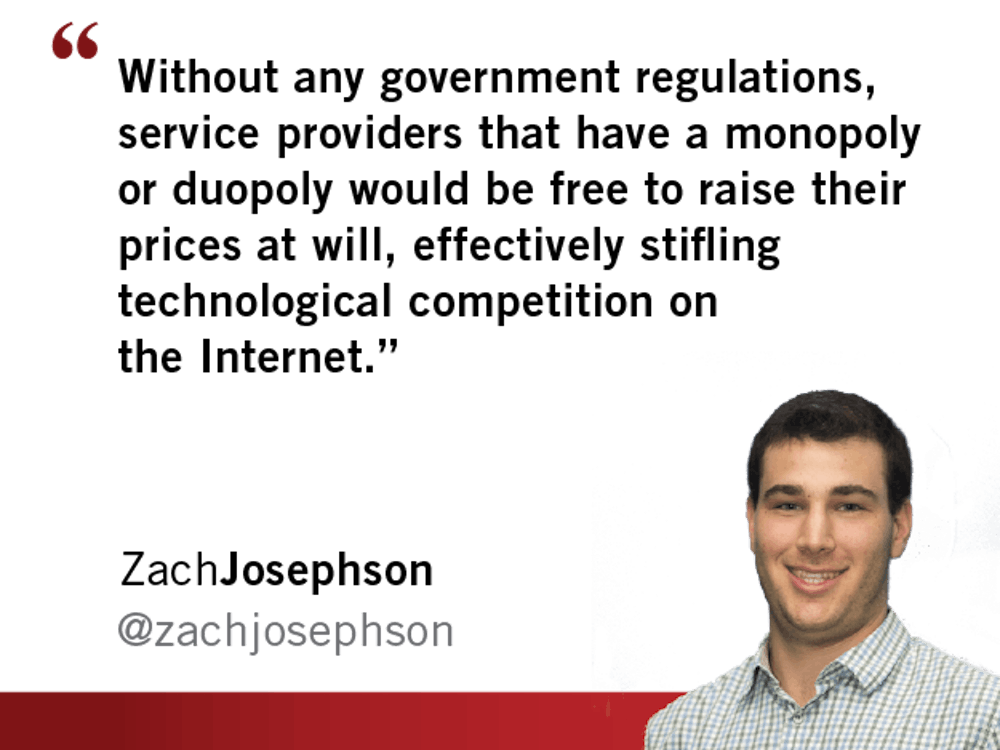Net neutrality has become a vital issue in American politics, but many members of Congress arguing against net neutrality don’t seem to understand the issue. Until recently, the battle for net neutrality was a battle between the service providers and the media-consuming public. Given the strength of the service providers, it’s no surprise that it has taken so long for any sort of government action, but in the wake of President Barack Obama’s statement Monday that the FCC should reclassify the Internet under Title II of the Communications act, net neutrality has suddenly rivaled immigration as the top policy issue today.
Although it has been making waves for quite a while now, many people are still unclear about what exactly net neutrality means. According to a recent Time article, net neutrality is simply the idea that “all Internet content should be treated equally in terms of speed.”
Following Obama’s statement, Republicans in Congress have made net neutrality a hugely political issue, but they don’t seem to understand the argument that they’re making. On Monday, House Speaker John Boehner released a statement in which he said, “An open, vibrant Internet is essential to a growing economy, and net neutrality is a textbook example of the kind of Washington regulations that destroy innovation and entrepreneurship,” and he goes on to say, “In the new Congress, Republicans will continue our efforts to stop this misguided scheme to regulate the Internet.”
 Boehner’s statement seems to be arguing in favor of both sides of the issue. On one hand, he claims to want to allow the Internet to be a breeding ground of new technological innovation, while at the same time, wanting to allow a monopoly or duopoly to control access to the Internet, free of any regulation.
Boehner’s statement seems to be arguing in favor of both sides of the issue. On one hand, he claims to want to allow the Internet to be a breeding ground of new technological innovation, while at the same time, wanting to allow a monopoly or duopoly to control access to the Internet, free of any regulation.
The misunderstanding of net neutrality continues in an opinion column that Sen. Ted Cruz published Thursday in the Washington Post. In his comments, Cruz says regulation of the Internet would lead “to fewer choices, fewer opportunities and higher prices.” Cruz could not be more wrong. Without any government regulations, service providers that have a monopoly or duopoly would be free to raise their prices at will, effectively stifling technological competition on the Internet.
The fight for net neutrality isn’t a fight to decrease competition on the Internet, but rather to limit the power of cable companies, as the only option, to unfairly charge to deliver content. One of the most notable cases of a service provider attempting to create a “fast-lane” for content delivery was Comcast’s eventual deal with online streaming giant Netflix.
Following the announcement of Comcast’s merger with Time Warner Cable in 2014, Netflix submitted a Petition to Deny to the FCC, citing its experience in its negotiations with Comcast. It contends that Comcast was degrading the quality of Netflix streaming to Comcast’s customers but “within a week of that agreement, viewing quality for Netflix streaming video on Comcast's network shot back up to HD-quality levels.”
While the exact details of Netflix’s agreement with Comcast were not released, a New York Times article about the deal claims, “A person close to the companies said it involved annual payments of several million dollars.” Netflix can afford this charge; however, for a new company that is attempting to innovate and provide a new service, this cost barrier would be a burden they couldn’t meet and would be a detriment to competition and innovation.
Now that net neutrality is a large political issue, the real issue at hand has been taken out of context and transformed into an argument about competition on the Internet. In reality, the important issue is competition for the Internet. Service providers that have a monopoly or duopoly must be regulated in the same way utility companies are. The government has an obligation to protect consumers, not a handful of service providers.
Reach the columnist at zjosephs@asu.edu or follow him on Twitter @zachjosephson
Editor’s note: The opinions presented in this column are the author’s and do not imply any endorsement from The State Press or its editors.
Want to join the conversation? Send an email to opiniondesk.statepress@gmail.com. Keep letters under 300 words and be sure to include your university affiliation. Anonymity will not be granted.
Like The State Press on Facebook and follow @statepress on Twitter.




